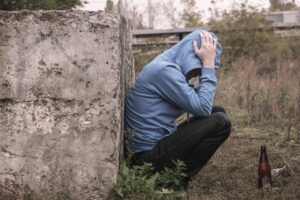Reflection for the First Sunday of Advent C December 1, 2024
Readings: Jeremiah 33: 14-16; Psalm 25; I Thessalonians 3:12–4:2 (RM) or 9-13 (RCL); Luke 21: 25-28, 34-36 (RM) or 25-36 (RCL.)
The end of the world, or what feels like the end of the world as we know it, might not take place on a colossal cosmic level. Sometimes it seems like our own life is coming undone – too many demands, too many losses, and too much fear for the future. Or maybe, a bit like the Temple in Jerusalem, something we have built up and maintained over the years — whether our home, our work, our health, our relationships with those we love, the accomplishments we’re most proud of, or our hopes for the future — might come tumbling down, with “no stone left on another.” A precious part of our lives has collapsed, and left an aching emptiness. It might not be the end of the world, but it certainly feels like it.
Our Gospel for the First Sunday of Advent evokes briefly this sense of impending doom. The rising waters, together with “signs” manifested in the cosmic disarray envisioned in the scriptures of the past few weeks, shatter any sense of security on the earth:
“There will be signs in the sun, the moon and the stars, and on earth nations will be in dismay, perplexed by the roaring of the sea and the waves. People will die of fright…”
This is not much different from the disaster epics we were hearing in the readings for November, as we approached the end of the church year. Now with the start of Advent, the gloom, despair and agony spills over with threatened catastrophe into the new church year. What gives? One would think, for those who come to church weighed down with a sense of foreboding about the state of the world, or the state of their own lives, seeking safety, serenity and a God they can trust, one might decide one has come to the wrong place.
But we can turn the readings upside down to arrive at a better place. This week’s first two readings each provide an angle of approach to give the threat of cataclysm and terror in the Gospel a solid grounding. The passage from Jeremiah names the purpose of these fear-inducing phenomena – the coming of justice on the earth. In 1 Thessalonians Paul exhorts his recently-planted faith community to
“abound in love for one another and for all people.”
They are to strengthen their hearts and watch their conduct, in anticipation of the coming of Christ. This would be heard as good news by those who hunger for justice, who have nothing invested in the current state of the world – those who, in the words of folk singer Richard Farina, have been
“down so long it looks like up to me.”
And there are several positive tweaks in the Gospel that appear in the verses left out of the Roman Missal but retained in the Revised Common Lectionary. Jesus uses the symbol of the fig tree, and all the trees, blossoming as a sign of the times – these were traditional symbols for the people of Israel, and an encouraging sign. And when the text reads, “this generation” will not pass away before all of this happens, who does that refer to? It can’t be literal – all those folks living in the first century have long since disappeared from the face of the earth. It’s an open symbol: it’s every generation that seeks the living presence of God in the way of Christ. It’s them. It’s us. And those who come after us.
Those of us who may have spent a lifetime working for social justice powered by our faith, whether out on the street or indoors, whether through churches, social service organizations or advocacy, pursue a commitment to follow through on the hope generated by this faithful work. But there are no guarantees. Ultimately, as in all things, success is a gift. The achievement of full justice is a gift. The work may be accomplished through our heads and hands, but its end lies in God. The first reading reminds us clearly, God is justice. Ultimate justice.
If this truth doesn’t jump up at us now, it will when we read ahead in the opening chapter of the Gospel of Luke, to the words of Mary’s canticle, Luke 1:46-56, patterned after the song of Hannah, 1 Samuel 2: 1-7. Inequality will be leveled out, systems dismantled, evil and selfish actions punished, and the impoverished and oppressed raised to full human dignity. Out of the storm, there will be justice.
Theologian Bernard Häring writes,
“For those who put their trust in Christ, everything, even the most insignificant or the most unpleasant event, becomes a sign of grace and hope, a school of vigilance for the coming of our [God.]”
Let our Advent this year be a time of hope-filled vigilance – a time to “stand up and raise your heads, because your redemption is drawing near.” (Lk 21:28).
© Susan K. Roll
Susan Roll retired from the Faculty of Theology at Saint Paul University, Ottawa, in 2018, where she served as Director of the Sophia Research Centre. Her research and publications are centred in the fields of liturgy, sacraments, and feminist theology. She holds a Ph.D. from the Catholic University of Leuven (Louvain), Belgium, and has been involved with international academic societies in liturgy and theology, as well as university chaplaincy, Indigenous ministry and church reform projects.




